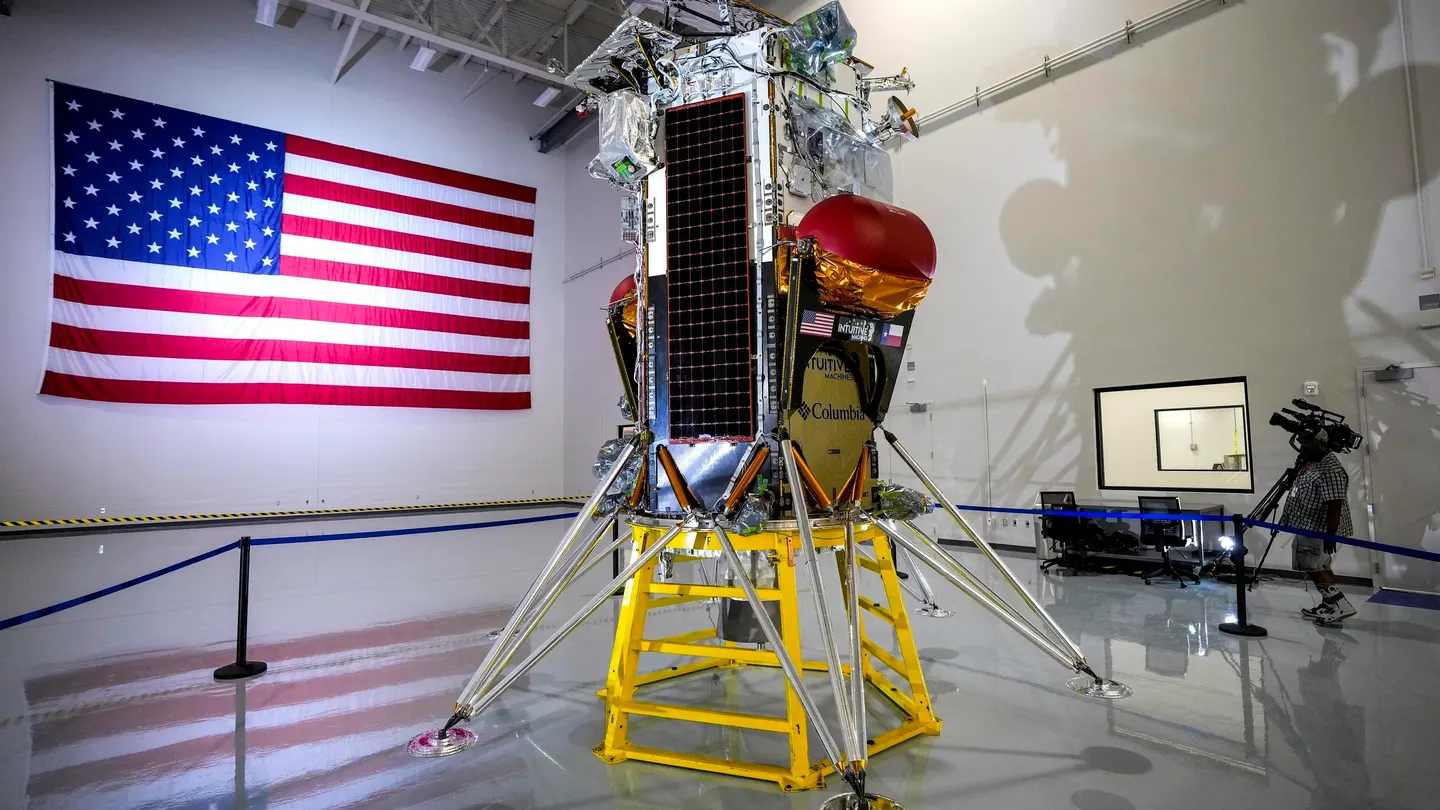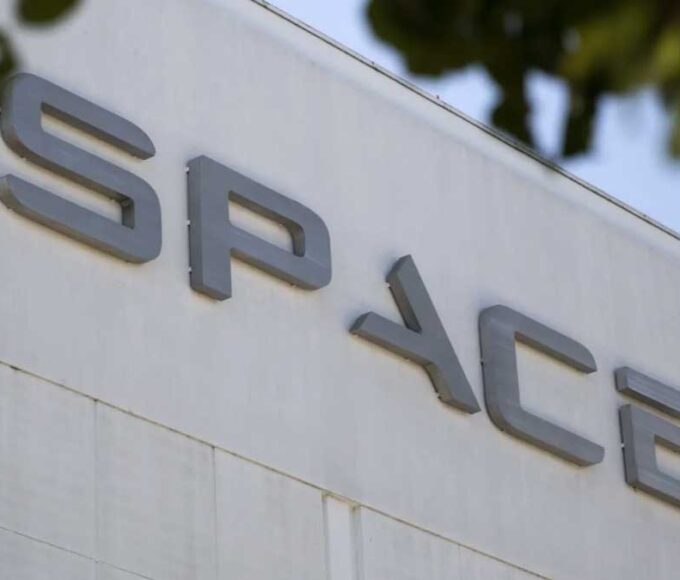- Home
- Billionaires
- Investing Newsletters
- 193CC 1000
- Article Layout 2
- Article Layout 3
- Article Layout 4
- Article Layout 5
- Article Layout 6
- Article Layout 7
- Article Layout 8
- Article Layout 9
- Article Layout 10
- Article Layout 11
- Article Layout 12
- Article Layout 13
- Article Layout 14
- Article Sidebar
- Post Format
- pages
- Archive Layouts
- Post Gallery
- Post Video Background
- Post Review
- Sponsored Post
- Leadership
- Business
- Money
- Small Business
- Innovation
- Shop
Recent Posts
Intuitive Machines Reschedules Moon Landing After SpaceX Delay

Houston-based Intuitive Machines is gearing up for an ambitious mission—to become the first private company to land on the Moon. After a slight delay due to technical issues, the company’s spacecraft, the Nova-C lander, is set to launch atop a Falcon 9 rocket from Elon Musk’s SpaceX. This mission, dubbed IM-1, was initially scheduled for a Valentine’s Day liftoff from NASA’s Kennedy Space Center in Florida but has been rescheduled for Thursday, with liftoff planned for 1:05 a.m. ET.
The Nova-C lander, affectionately nicknamed Odie, is set to separate from the Falcon 9 rocket and embark on a direct trajectory to the Moon. Its destination? The Moon’s south pole region, where it aims to touch down around February 22, approximately nine days after takeoff. The delay in launch raises questions about whether this timeline will be affected.
Those eager to witness this historic moment can tune in to NASA’s livestream on the agency’s websites, social media channels, and NASA TV. Additionally, both Intuitive Machines and SpaceX will be streaming the launch on their respective websites and social media platforms.
The payload aboard Odysseus is diverse and intriguing. In addition to carrying various equipment and science experiments for NASA, for which Intuitive Machines will reportedly receive $118 million, the lander is also transporting a series of sculptures by renowned artist Jeff Koons as part of an NFT crypto project. Furthermore, Odie is equipped with material developed by clothing maker Columbia Sportswear to insulate the lander.
This mission by Intuitive Machines comes on the heels of a setback in the private space industry. Pittsburgh-based Astrobotic Technology’s attempt to land its Peregrine lunar lander on the Moon in January ended in failure due to a catastrophic fuel leak shortly after takeoff. Instead of risking a drift in space, entering orbit, or crashing into the Moon, Astrobotic chose to have Peregrine return to Earth, where it burned up in the atmosphere upon reentry.
The IM-1 mission, along with Astrobotic’s Peregrine, is part of NASA’s effort to bolster the emerging space economy and cultivate commercial partners for further exploration. This initiative, known as the Commercial Lunar Payload Services (CLPS) program, aims to reduce costs for NASA missions and enable two lunar deliveries annually. To support this program, NASA has allocated $2.6 billion for contracts through 2028, with 14 American companies, including Blue Origin, SpaceX, and Lockheed Martin Space, selected to bid for contracts.
As Intuitive Machines prepares to make history with the IM-1 mission, the eyes of the world are on the Houston-based company as it strives to achieve a significant milestone in space exploration.
Recent Posts
Categories
- 193cc Digital Assets2
- 5G1
- Aerospace & Defense46
- AI37
- Arts3
- Banking & Insurance11
- Big Data3
- Billionaires462
- Boats & Planes1
- Business328
- Careers13
- Cars & Bikes76
- CEO Network1
- CFO Network17
- CHRO Network1
- CIO Network1
- Cloud10
- CMO Network18
- Commercial Real Estate7
- Consultant1
- Consumer Tech180
- CxO1
- Cybersecurity68
- Dining1
- Diversity, Equity & Inclusion4
- Education7
- Energy8
- Enterprise Tech29
- Events11
- Fintech1
- Food & Drink2
- Franchises1
- Freelance1
- Future Of Work2
- Games141
- GIG1
- Healthcare78
- Hollywood & Entertainment186
- Houses1
- Innovation42
- Investing2
- Investing Newsletters4
- Leadership65
- Lifestyle11
- Manufacturing1
- Markets20
- Media193
- Mobile phone1
- Money13
- Personal Finance2
- Policy567
- Real Estate1
- Research6
- Retail1
- Retirement1
- Small Business1
- SportsMoney33
- Style & Beauty1
- Success Income1
- Taxes2
- Travel10
- Uncategorized8
- Vices1
- Watches & Jewelry2
- world's billionaires431
Related Articles
Universe Expanding Faster Than Expected, New Data Shows
Recent findings from the James Webb Space Telescope (JWST) have confirmed something...
By 193cc Agency CouncilDecember 10, 2024Russian Soldier Life Expectancy: One Month Amid Losses
In the ongoing war between Russia and Ukraine, a stark reality faces...
By 193cc Agency CouncilNovember 29, 2024Trump Joins Elon Musk for SpaceX Starship Test Flight
President-elect Donald Trump is expected to attend the latest launch of SpaceX’s...
By 193cc Agency CouncilNovember 19, 2024SpaceX Launches Dragon to Rescue Stranded Astronauts
SpaceX’s Dragon spacecraft launched successfully from Cape Canaveral, Florida, on Saturday afternoon,...
By 193cc Agency CouncilSeptember 28, 2024















Leave a comment